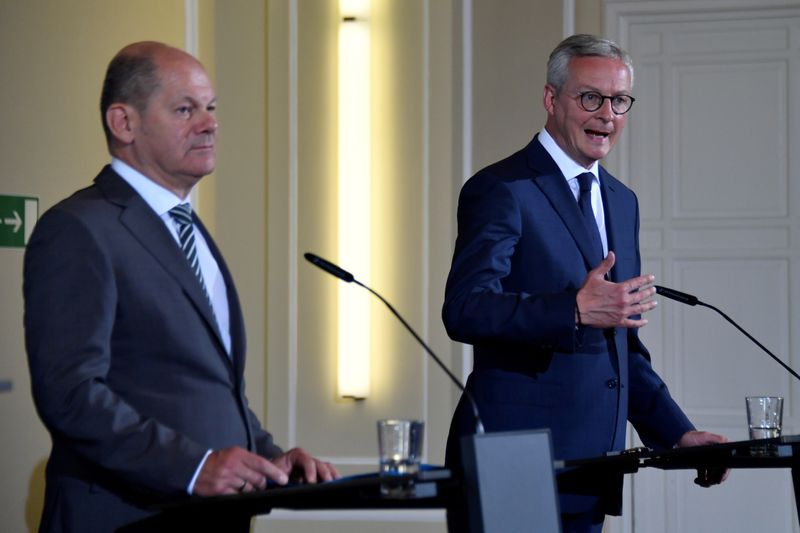BERLIN (Reuters) – France and Germany on Monday pressed for a quick agreement among European Union leaders on the size and payout details of a joint fund aimed at helping the hardest hit member states to recover more quickly from the coronavirus pandemic.
Speaking to reporters after talks in Berlin, German Finance Minister Olaf Scholz and his French counterpart Bruno Le Maire said they were confident that a deal on the European Recovery Fund could be reached soon, ideally at an EU summit next month.
“It’s time to decide, we have everything on the table to support our economies and the quicker the better,” Le Maire said.
“Having strong economies in the single market is of course an advantage for all the members of the EU,” Le Maire added.
Le Maire said Germany and France both agreed that the European Recovery Fund should pay out the proposed funds of at least 500 billion euros from 2020 until 2022 – and not until 2024 as suggested by some member states.
Scholz and Le Maire also discussed how to rescue stalled negotiations on global corporate taxation and international tax rules for big digital companies after the United States quit talks and stoked fears of a new trade war.
Nearly 140 countries are involved in the talks organised by the Organisation for Economic Cooperation and Development (OECD) on the first major rewrite of global tax rules in a generation to bring them up to date for the digital era.
Scholz said he was confident an OECD agreement could be reached by the end of the year despite Washington’s announcement it would pull out of negotiations on a global digital services tax.
Le Maire said it was now up to the United States to explain why Washington was the only country not supporting the OECD’s joint proposal.
(Reporting by Michael Nienaber in Berlin and Leigh Thomas in Paris; Additional reporting by Andreas Rinke; Editing by Angus MacSwan)

























